
Bafia: Gateway to Cameroon's Heartland
Nestled in the center of Cameroon, Bafia is a charming city that offers a unique blend of cultural heritage and natural beauty. Known for its warm and welcoming locals, Bafia serves as a perfect introduction to the rich traditions and vibrant lifestyle of the Bafia people. The city is an ideal destination for those looking to experience the authentic essence of Cameroon away from the hustle and bustle of larger cities. One of the highlights of Bafia is its bustling markets, where colorful stalls brim with local produce, handcrafted goods, and traditional textiles. The market is a sensory delight, with the aroma of spices, the chatter of vendors, and the vibrant colors of fruits and vegetables creating a lively atmosphere. Don't miss out on the chance to try local delicacies such as plantains, yams, and grilled fish. For nature enthusiasts, Bafia offers a variety of outdoor activities. The surrounding landscape is dotted with lush forests, rolling hills, and picturesque rivers, making it perfect for hiking, bird-watching, and exploring. The nearby Mbam River provides opportunities for fishing and canoeing, offering a peaceful retreat into nature. Additionally, the region is home to several traditional villages where visitors can learn about the local way of life and participate in cultural ceremonies. Bafia is also known for its vibrant festivals and events. Throughout the year, the city comes alive with music, dance, and celebrations that showcase the rich cultural heritage of the Bafia people. Whether it's the lively rhythms of traditional drums or the intricate movements of local dances, these events provide a captivating insight into the community's spirit and traditions.
Local tips in Bafia
- Visit the local markets early in the morning for the freshest produce and a more authentic experience.
- Hire a local guide to explore the traditional villages and learn about the Bafia culture and customs.
- Bring comfortable walking shoes for exploring the natural trails and outdoor activities around Bafia.
- Participate in local festivals to fully immerse yourself in the cultural life of Bafia.
- Try local dishes at small, family-run eateries for a true taste of Bafia cuisine.
Bafia: Gateway to Cameroon's Heartland
Nestled in the center of Cameroon, Bafia is a charming city that offers a unique blend of cultural heritage and natural beauty. Known for its warm and welcoming locals, Bafia serves as a perfect introduction to the rich traditions and vibrant lifestyle of the Bafia people. The city is an ideal destination for those looking to experience the authentic essence of Cameroon away from the hustle and bustle of larger cities. One of the highlights of Bafia is its bustling markets, where colorful stalls brim with local produce, handcrafted goods, and traditional textiles. The market is a sensory delight, with the aroma of spices, the chatter of vendors, and the vibrant colors of fruits and vegetables creating a lively atmosphere. Don't miss out on the chance to try local delicacies such as plantains, yams, and grilled fish. For nature enthusiasts, Bafia offers a variety of outdoor activities. The surrounding landscape is dotted with lush forests, rolling hills, and picturesque rivers, making it perfect for hiking, bird-watching, and exploring. The nearby Mbam River provides opportunities for fishing and canoeing, offering a peaceful retreat into nature. Additionally, the region is home to several traditional villages where visitors can learn about the local way of life and participate in cultural ceremonies. Bafia is also known for its vibrant festivals and events. Throughout the year, the city comes alive with music, dance, and celebrations that showcase the rich cultural heritage of the Bafia people. Whether it's the lively rhythms of traditional drums or the intricate movements of local dances, these events provide a captivating insight into the community's spirit and traditions.
When is the best time to go to Bafia?
Unmissable attractions to see
SAVE AFRICA
Discover Cameroonian culture and sustainable practices at SAVE AFRICA in Ngoro, an enriching experience for conscious travelers.
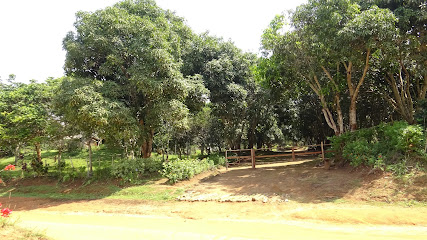
Francesco's tree
Discover the majestic Francesco's Tree in Ngon, a breathtaking natural attraction that offers tranquility and stunning views for all nature lovers.

Carrefour Ngoksa
Experience the vibrant culture and community life at Carrefour Ngoksa, a must-visit tourist attraction in Ebebda, Cameroon.

Carrefour Eyéné
Experience the vibrant heart of Eyéné: a cultural crossroads where local crafts, delicious street food, and warm Cameroonian hospitality converge for an unforgettable adventure.
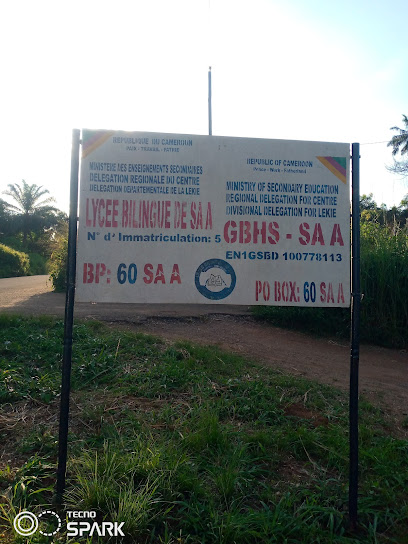
Lac de carrière Bleu de kon Yambetta
Discover Cameroon's hidden gem: Lac de Carrière Bleu de Kon Yambetta, a stunning blue lake offering tranquility and natural beauty.
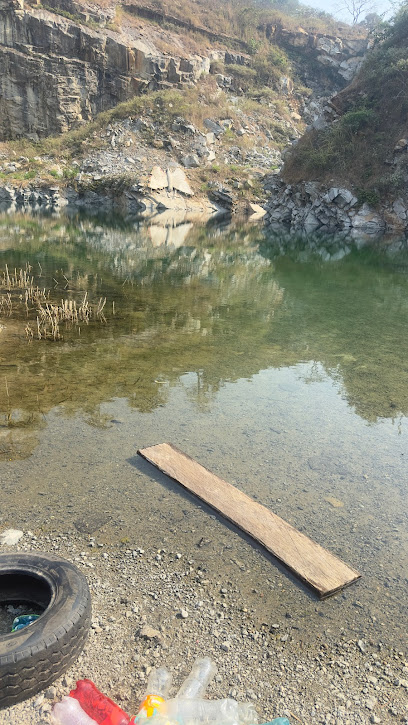
Carrefour Ngomo
Experience the vibrant culture and local flavors at Carrefour Ngomo, a premier tourist attraction in Cameroon for an authentic journey.

Tom's Tree
Experience the natural beauty and cultural significance of Tom's Tree in Ngon, a captivating tourist attraction surrounded by lush greenery.
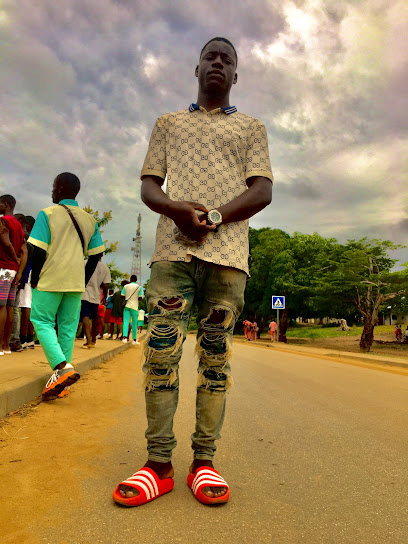
Place de fêtes de SA'A
Experience the vibrant culture of Nkolmesing at Place de fêtes de SA'A, a lively tourist attraction filled with local festivities and traditions.

Étang boalondo
Experience the tranquil beauty of Étang Boalondo, a serene lake in Balamba, perfect for relaxation and nature exploration.

Foyer culturel Menoua à Obala
Experience the heart of Cameroonian culture at Foyer culturel Menoua in Obala, a vibrant hub for art, music, and tradition.

Lac de Bayomen
Explore the breathtaking beauty and tranquility of Lac de Bayomen, a hidden hiking gem in Bafia, Cameroon, perfect for nature lovers and adventurers.

Douala
Explore Douala, Cameroon: a vibrant city blending rich culture, delicious cuisine, and stunning waterfront views for an unforgettable travel experience.

Village MOUKO
Experience the enchanting Village MOUKO, a captivating Cameroonian destination filled with rich culture, stunning landscapes, and warm hospitality.

Village Mbam'Art
Discover Cameroonian culture at Village Mbam'Art near Bafia: vibrant crafts, artistic expression, and local traditions await!

Carrefour Ayissi Elé
Experience the vibrant culture of Cameroon at Carrefour Ayissi Elé in Mbasila, a marketplace brimming with local crafts and authentic cuisine.

Essential places to dine
Le Restaurant Bayama Obala
Experience authentic Cameroonian cuisine at Le Restaurant Bayama Obala, where every meal is a celebration of local flavors and hospitality.
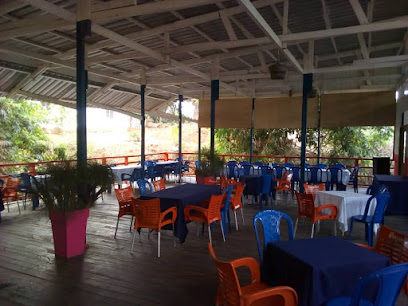
Chez Grand-Mére
Experience authentic Cameroonian cuisine at Chez Grand-Mére in Bafia - where every dish tells a story.
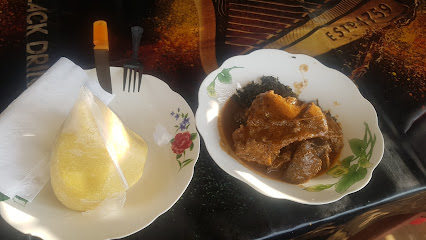
Guichet de la boulangerie du plateau
Experience the authentic flavors of Bafia at Guichet de la boulangerie du plateau - your go-to destination for breakfast delights.
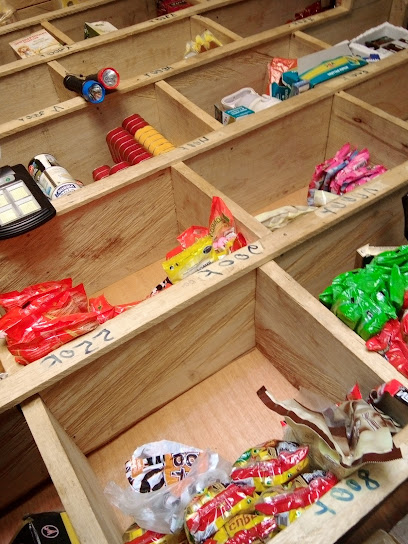
Cave ndengue
Discover vibrant nightlife at Cave Ndengue in Bafia - where local culture meets refreshing drinks and great company.
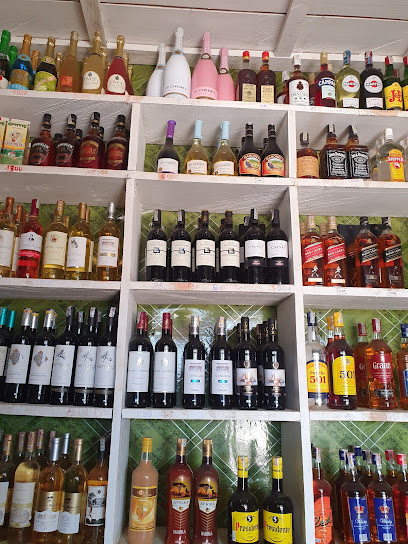
SEM-SEM
Discover SEM-SEM: A lively bar in Bafia with great music and an inviting atmosphere perfect for socializing.
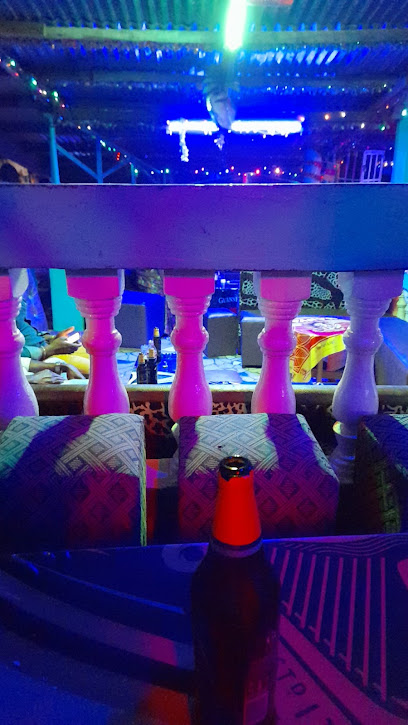
Boulangerie
Discover authentic French pastries at Boulangerie in Bafia – where every bite tells a story of tradition and taste.

LES SAVEURS DE NICO-GABI
Discover authentic Cameroonian barbecue at Les Saveurs de Nico-Gabi in Obala - a culinary delight for all meat lovers!
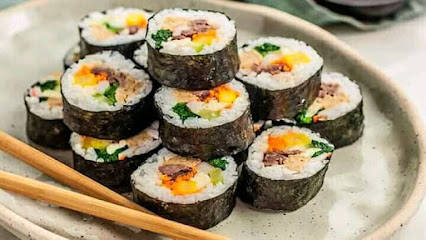
Café Restaurant Le Darius
Discover authentic Cameroonian flavors at Café Restaurant Le Darius in Bafia – where every sip tells a story.
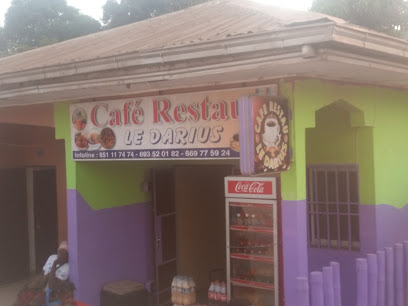
Total Bafia
Savor the essence of Africa at Total Bafia, where every dish tells a story of tradition and flavor in Makenene.

Secteur Bar
Experience the vibrant social scene at Secteur Bar in Bafia – your go-to spot for relaxation and authentic local flavor.
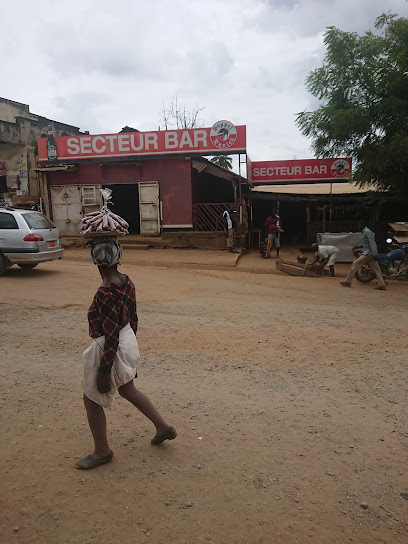
Restaurant Yaya après MC2 bafia
Discover authentic Cameroonian breakfast delights at Restaurant Yaya in Bafia, where every meal promises warmth and flavor.
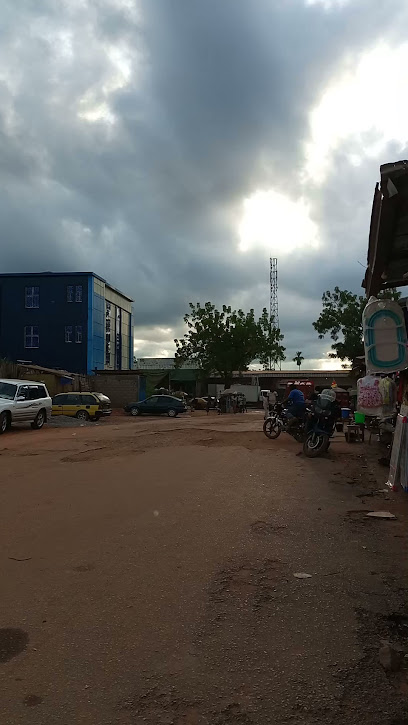
Renouveau bar
Discover Renouveau Bar in Bafia: A vibrant oasis offering refreshing drinks and local charm amidst Cameroon’s captivating nightlife.

Oxygène bar
Discover Bafia's nightlife at Oxygène Bar, where vibrant atmosphere meets delightful drinks and live music.

Mille saveurs
Experience the essence of Cameroonian cuisine at Mille Saveurs, where every dish tells a story of tradition and flavor.

Porte jaune.
Discover the lively ambiance of Porte Jaune in Bafia – your go-to bar for unforgettable nights filled with good drinks and great company.
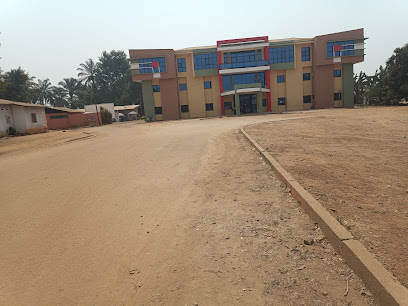
Markets, malls and hidden boutiques
Agri-Shop Sarl
Discover Agri-Shop Sarl in Bafia, the premier destination for high-quality agricultural products and expert advice for farmers and gardeners.
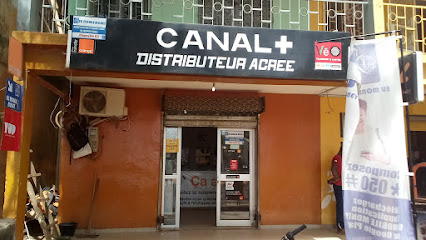
Alimentation Olivier
Explore Alimentation Olivier in Batchenga for unique fashion accessories that celebrate local artistry and cultural flair.
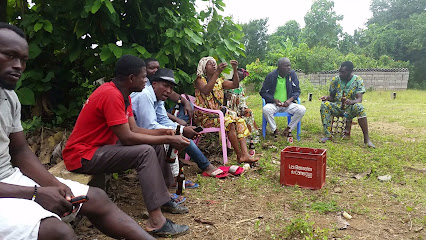
Mercerie
Experience local culture and shopping at Mercerie Shopping Mall in Ombessa, a hub of vibrant commerce and community connection.
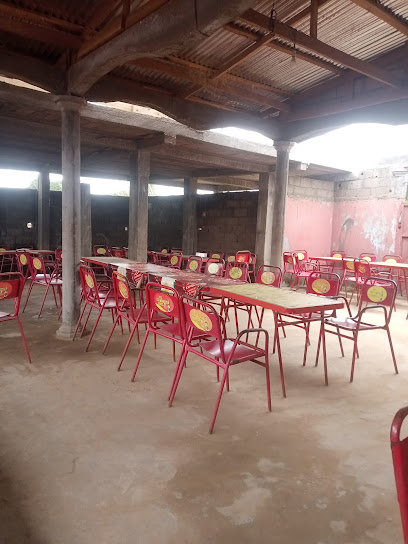
Marché njoumba
Discover the vibrant local culture and unique products at Marché Njoumba, Bafia's bustling market for an authentic Cameroonian experience.
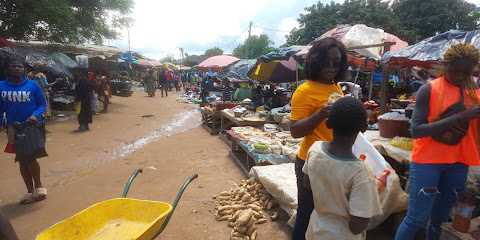
Boutique Orange OMBESSA
Discover the latest in mobile technology at Boutique Orange OMBESSA, your go-to cell phone store in the heart of Ombessa.
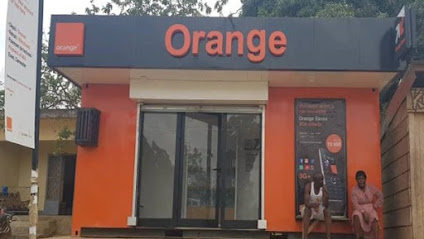
CONGELCAM 2 BAFiA
Discover the best seafood offerings at Congelcam 2 Bafia, a highlight for culinary enthusiasts in the heart of Cameroon.
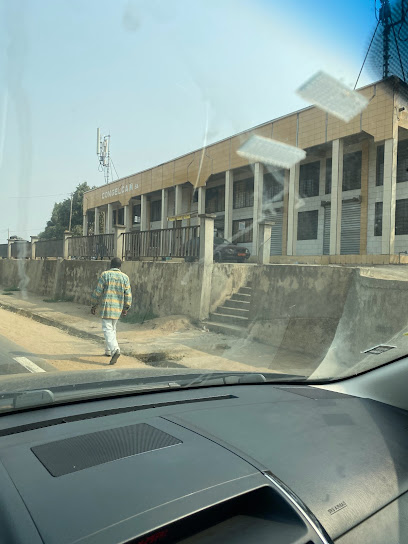
Café Restaurant Le Darius
Discover the cozy charm of Café Restaurant Le Darius in Bafia, where authentic coffee and delicious meals await.
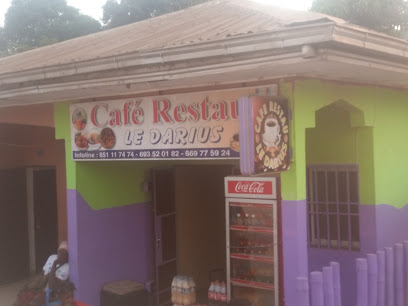
Carrefour NDENGUE
Discover the local charm of Carrefour NDENGUE, Bafia's vibrant truck stop, offering a unique blend of services and traditional Cameroonian flavors.
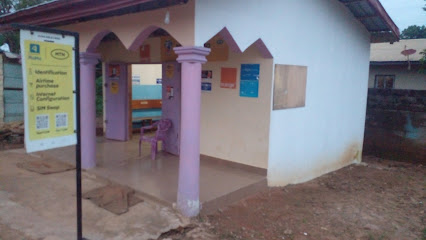
ISSANDJA STORE
Explore ISSANDJA with ease by connecting at the ISSANDJA STORE, your local call shop for reliable communication and travel tips.

VEO BAFIA
Experience the best shopping in Bafia at VEO BAFIA, where quality meets affordability in a vibrant outlet store.
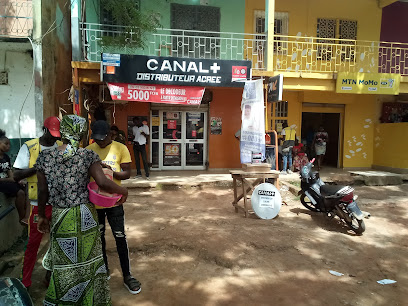
Pimenterie De Bafia
Experience the vibrant flavors of Cameroon at Pimenterie De Bafia, the local grocery store showcasing authentic ingredients and culinary traditions.
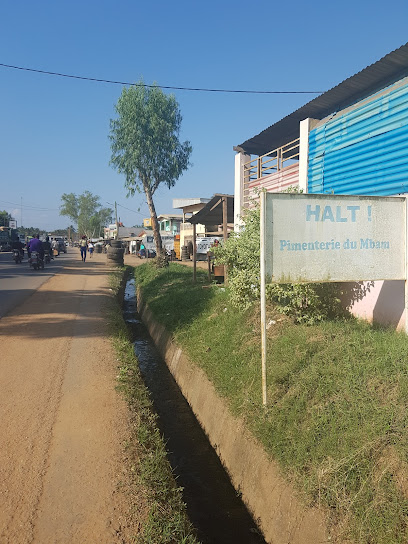
MAXI Ludo solaires
Discover the latest electronics and gadgets at MAXI Ludo Solaire in Bafia, where technology meets exceptional service.
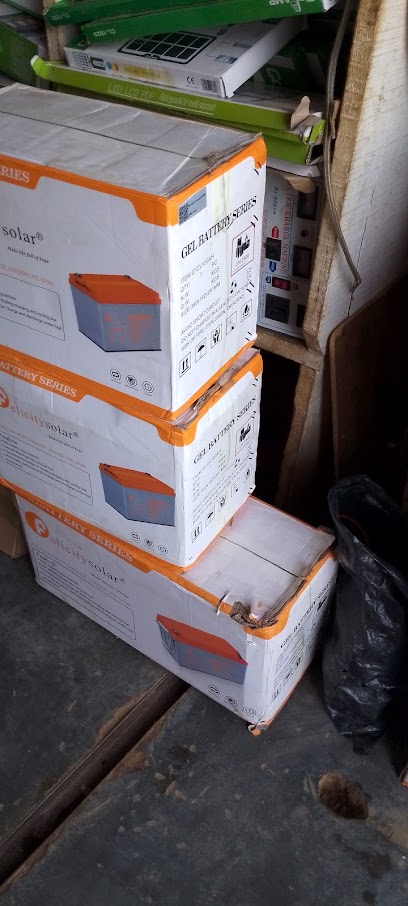
CONGELCAM BAFIA
Experience the best of Bafia's seafood at Congelcam Bafia, where fresh catches meet local culinary traditions.
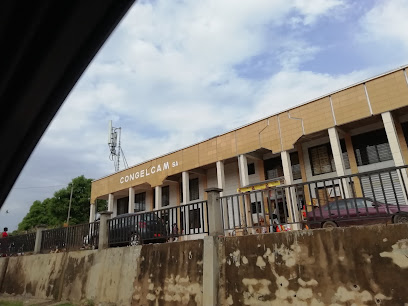
Boulangerie Pâtisserie TBG
Discover the irresistible charm of Boulangerie Pâtisserie TBG in Bafia, where every bite is a celebration of local flavors and craftsmanship.

Ici c'est Paris
Discover expert mobile phone repairs at Ici c'est Paris in Bafia, ensuring your devices are always in peak condition.
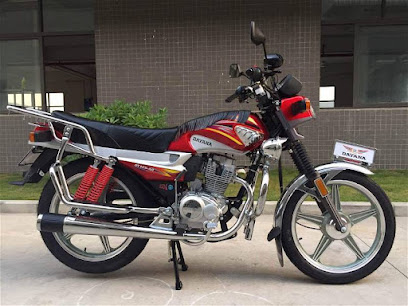
Essential bars & hidden hideouts
Cave ndengue
Experience the vibrant atmosphere of Cave Ndengue, Bafia's premier bar, where local culture meets refreshing drinks in a lively setting.
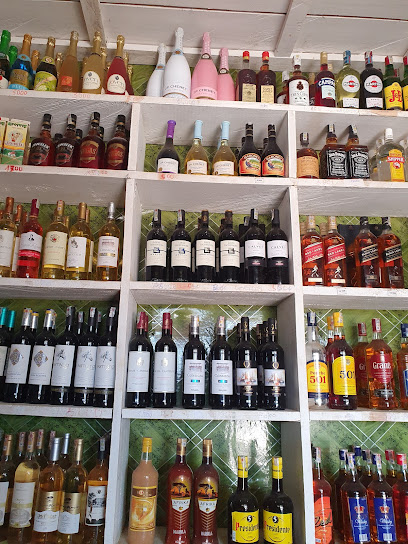
New palace
Discover the New Palace Hotel in Bafia, where modern comfort meets local hospitality, creating an unforgettable travel experience.
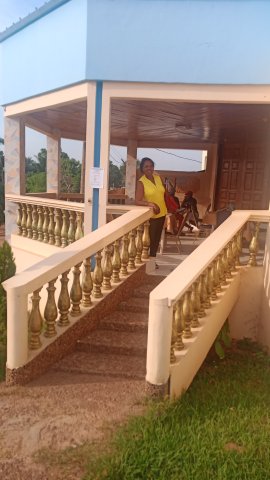
SEM-SEM
Discover the vibrant nightlife and local culture at SEM-SEM Bar in Bafia, where great drinks and lively music come together.
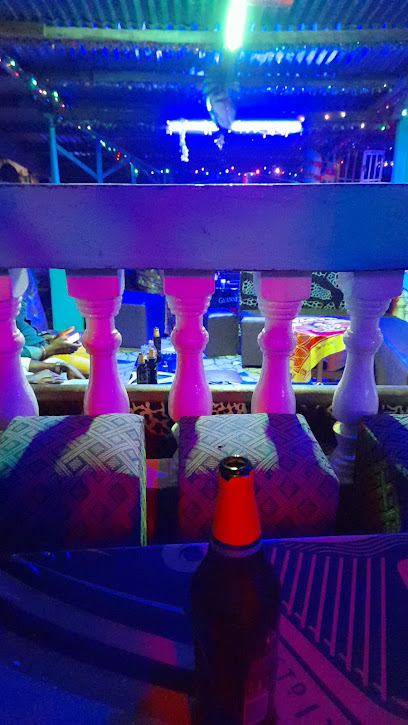
Café Restaurant Le Darius
Experience the authentic taste of Cameroon at Café Restaurant Le Darius, a cozy coffee shop in the heart of Bafia offering local flavors and warm hospitality.
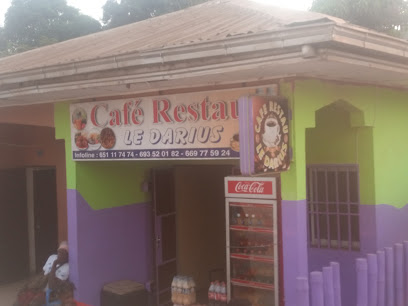
Secteur Bar
Experience the vibrant nightlife at Secteur Bar in Bafia, where local flavors meet a lively atmosphere for unforgettable evenings.
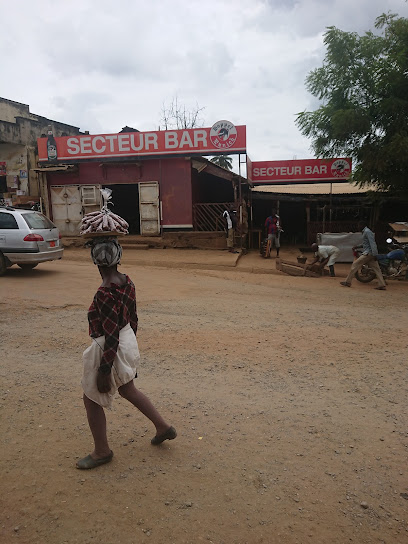
Restaurant Yaya après MC2 bafia
Savor a delightful breakfast at Restaurant Yaya in Bafia, where local flavors meet cozy ambiance for an unforgettable morning meal.
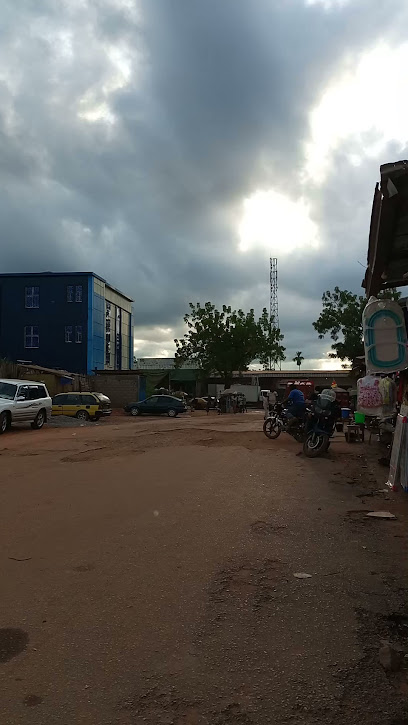
Oxygène bar
Discover the inviting charm of Oxygène Bar in Bafia, where relaxation meets local culture and great drinks.

Renouveau bar
Discover the vibrant nightlife at Renouveau Bar in Bafia, where local culture meets a lively atmosphere for drinks and socializing.

Boutique Bar La main de Dieu
Experience the vibrant nightlife at Boutique Bar La main de Dieu in Ombessa, where local culture meets exquisite drinks in a charming setting.
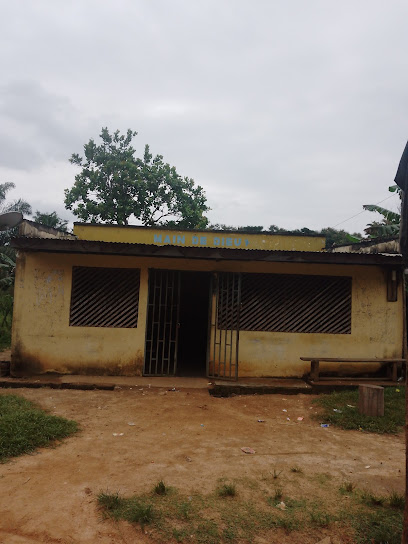
Treize bar
Discover the vibrant energy of Treize Bar in Bafia - a local hotspot for drinks, music, and cultural experiences.
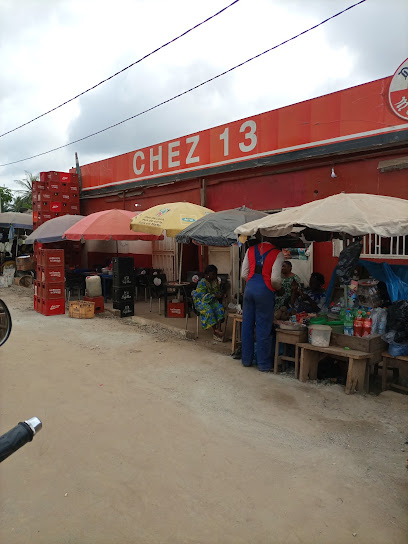
Porte jaune.
Experience the authentic vibe of Bafia at Porte Jaune, a cozy bar where locals and travelers meet to unwind and enjoy local flavors.
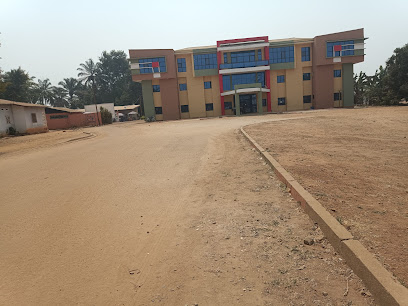
Tanak
Discover the vibrant barbecue culture at Tanak in Bafia, where every bite is a celebration of flavor and tradition.
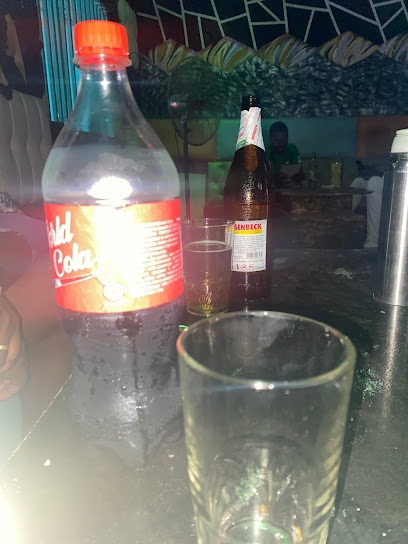
Central bar
Discover the lively atmosphere of Central Bar in Bafia, where local culture and vibrant entertainment come together for an unforgettable experience.
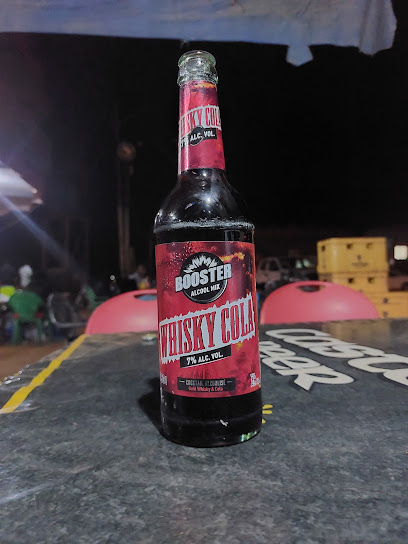
Akone Bar
Discover the lively atmosphere and authentic local culture at Akone Bar, the ultimate destination for an unforgettable night in Ombessa, Cameroon.

Ikō-ikinya
Experience the vibrant nightlife of Bafia at Ikō-ikinya, where refreshing drinks and local culture come together in a lively atmosphere.
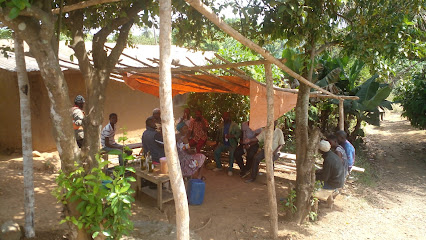
Local Phrases
-
- HelloMbolo
[m-boh-loh] - GoodbyeNyama
[nyah-mah] - YesEe
[eh] - NoA'a
[ah-ah] - Please/You're welcomeS'il vous plaît
[see voo play] - Thank youMèsi
[meh-see] - Excuse me/SorryPardon
[pahr-dohn] - How are you?O na fe?
[oh nah feh] - Fine. And you?Na fe. O na?
[nah feh. oh nah] - Do you speak English?E na fe Anglais?
[eh nah feh ahn-glay] - I don't understandA'a, ma yè
[ah-ah, mah yeh]
- HelloMbolo
-
- I'd like to see the menu, pleaseNa yu sa menu, s'il vous plaît
[nah yoo sah meh-noo, see voo play] - I don't eat meatMa yu sa nyama
[mah yoo sah nyah-mah] - Cheers!A votre santé!
[ah vo-tray san-tay] - I would like to pay, pleaseNa yu sa pay, s'il vous plaît
[nah yoo sah pay, see voo play]
- I'd like to see the menu, pleaseNa yu sa menu, s'il vous plaît
-
- Help!Aidez-moi!
[ay-day mwah] - Go away!Allez-vous-en!
[al-lay vooz ahn] - Call the Police!Appelez la police!
[ah-puh-lay lah poh-lees] - Call a doctor!Appelez un médecin!
[ah-puh-lay ahn may-day-san] - I'm lostMa, na wu
[mah, nah woo] - I'm illMa, na ngo
[mah, nah ngo]
- Help!Aidez-moi!
-
- I'd like to buy...Na yu sa ache...
[nah yoo sah ah-chay] - I'm just lookingNa yu sa regarde
[nah yoo sah ruh-gard] - How much is it?Combien ça coûte?
[kohm-byen sah coot] - That's too expensiveÇa c'est trop cher
[sah say troh shay] - Can you lower the price?Pouvez-vous baisser le prix?
[poo-vey voo beh-say luh pree]
- I'd like to buy...Na yu sa ache...
-
- What time is it?Na na lekè?
[nah nah leh-kay] - It's one o'clockNa lekè mò
[nah leh-kay moh] - Half past (10)Lekè mò na tàn
[leh-kay moh nah tan] - MorningNgan
[ngahn] - AfternoonNtang
[n-tang] - EveningEmo
[eh-moh] - YesterdayMènkè
[mehn-kay] - TodayNènkè
[nehn-kay] - TomorrowNènkè mò
[nehn-kay moh] - 1Yɛ́kɛ
[yeh-kay] - 2Mvɔ́ɔ
[m-voh-oh] - 3Sɔ́m
[soh-m] - 4Nyi
[nyee] - 5Naan
[nah-ahn] - 6Nɔ́n
[nohn] - 7Nanɛ́
[nah-neh] - 8Nɔ́ɔ
[noh-oh] - 9Nyaan
[nyahn] - 10Naanɛ́
[nah-neh]
- What time is it?Na na lekè?
-
- Where's a/the...?Ndeh á...
[n-deh ah] - What's the address?Ndeh yʉ́?
[n-deh yuh] - Can you show me (on the map)?Pouvɛz-vɔus madɛ mɔi (na mɑp)?
[poo-vez-voo mah-deh moh-ee (nah map)] - When's the next (bus)?Ndeh yʉ́ tɔk?
[n-deh yuh tohk] - A ticket (to ....)Yɛ́kɛ yɔn (na ....)
[yeh-kay yohn (nah)]
- Where's a/the...?Ndeh á...
History of Bafia
-
Bafia, located in the Mbam-et-Inoubou division of the Centre Region of Cameroon, is historically inhabited by the Bafia people, an ethnic group known for their rich culture and traditions. The Bafia people have lived in this region for centuries, with a social structure deeply rooted in clan systems and chieftaincy.
-
During the late 19th and early 20th centuries, Bafia fell under German colonial rule. The Germans established administrative and military posts in the region, leaving behind a legacy of colonial architecture and infrastructure. This period saw the introduction of Western education and Christianity, which began to blend with local traditions.
-
Following World War I, Cameroon was divided between the French and British under a League of Nations mandate. Bafia came under French administration, leading to further development in infrastructure, education, and health services. This era also saw the rise of nationalist movements, culminating in Cameroon’s independence in 1960.
-
After gaining independence, Bafia experienced significant urbanization and modernization. The construction of roads, schools, and healthcare facilities accelerated, transforming the town into a regional hub. However, Bafia has managed to retain much of its traditional charm and cultural heritage despite these changes.
-
Bafia is renowned for its vibrant cultural practices and festivals. Traditional dances, music, and ceremonies play a vital role in the community life. The Ngondo Festival, a significant cultural event, showcases the rich heritage of the Bafia people through performances, rituals, and traditional wrestling matches.
-
Agriculture is the backbone of Bafia’s economy, with cocoa, coffee, and palm oil being the primary cash crops. Additionally, Bafia is known for its skilled artisans who produce intricate wood carvings, pottery, and traditional textiles. These crafts not only serve as a source of income but also preserve the cultural identity of the Bafia people.
-
Bafia has a strong educational foundation, with numerous primary and secondary schools, as well as vocational institutions. The town is also a religious center, with a mix of Christian denominations and indigenous beliefs coexisting harmoniously. Churches and mission schools established during the colonial era continue to play a crucial role in the community.
-
Today, Bafia is a bustling town that serves as a gateway to the rich cultural and natural landscapes of the Centre Region. The town is characterized by its mix of traditional and modern lifestyles, with bustling markets, modern amenities, and a warm, welcoming community that reflects the spirit of Cameroonian hospitality.
Bafia Essentials
-
Bafia is situated in the Centre Region of Cameroon. The nearest major airport is Yaoundé Nsimalen International Airport, located approximately 130 kilometers away. From Yaoundé, you can take a bus or hire a taxi to Bafia. The journey typically takes around 2 to 3 hours by road. Alternatively, you can also use domestic flights to reach smaller airports closer to Bafia, followed by a local taxi or bus ride.
-
Within Bafia, transportation options include local taxis, motorcycle taxis (benskin), and minibuses. Taxis are relatively inexpensive and a common means of getting around. Motorcycle taxis are quicker for short distances but exercise caution with safety. Public minibuses connect different parts of the town and nearby villages. Renting a car is an option but be aware of road conditions and traffic rules.
-
The official currency in Cameroon is the Central African CFA Franc (XAF). Credit cards are not widely accepted in Bafia, so it is advisable to carry sufficient cash. ATMs are available, but it's wise to withdraw money in larger cities like Yaoundé before traveling to Bafia. Ensure you have smaller denominations for everyday transactions.
-
Bafia is generally safe for tourists, but standard precautions should be taken. Avoid walking alone at night and stay aware of your surroundings. Be cautious in crowded areas to prevent pickpocketing. Neighborhoods with higher crime rates targeting tourists are rare, but it's best to stay informed through local sources and your accommodation.
-
In case of emergency, dial 112 for immediate assistance. Bafia has local police stations and medical facilities. It is recommended to have travel insurance that covers medical emergencies. For minor health issues, pharmacies are available where you can purchase over-the-counter medications.
-
Fashion: Do dress modestly, especially in rural areas and when visiting religious sites. Avoid wearing overly revealing clothing. Religion: Do respect local customs and traditions. Always ask for permission before taking photos in religious sites. Public Transport: Do be polite and considerate to other passengers. Don't eat or drink on public transport. Greetings: Do greet people with a handshake or a friendly wave. Learn a few basic phrases in French or the local language to show respect. Eating & Drinking: Do try local dishes and accept food offerings graciously. Don't refuse hospitality, as it is considered impolite.
-
To experience Bafia like a local, visit the bustling local markets to buy fresh produce and handmade crafts. Engage with locals, who are often friendly and willing to share stories about their culture. Attend local festivals and events to immerse yourself in the community. Try traditional dishes such as 'Ndolé' and 'Ekwang' for an authentic taste of the region.
Nearby Cities to Bafia
-
Things To Do in Yaoundé
-
Things To Do in Foumban
-
Things To Do in Bafoussam
-
Things To Do in Mbouda
-
Things To Do in Nkongsamba
-
Things To Do in Dschang
-
Things To Do in Edea
-
Things To Do in Bamenda
-
Things To Do in Douala
-
Things To Do in Ebolowa
-
Things To Do in Tiko
-
Things To Do in Buea
-
Things To Do in Mamfe
-
Things To Do in Limbe
-
Things To Do in Kribi







